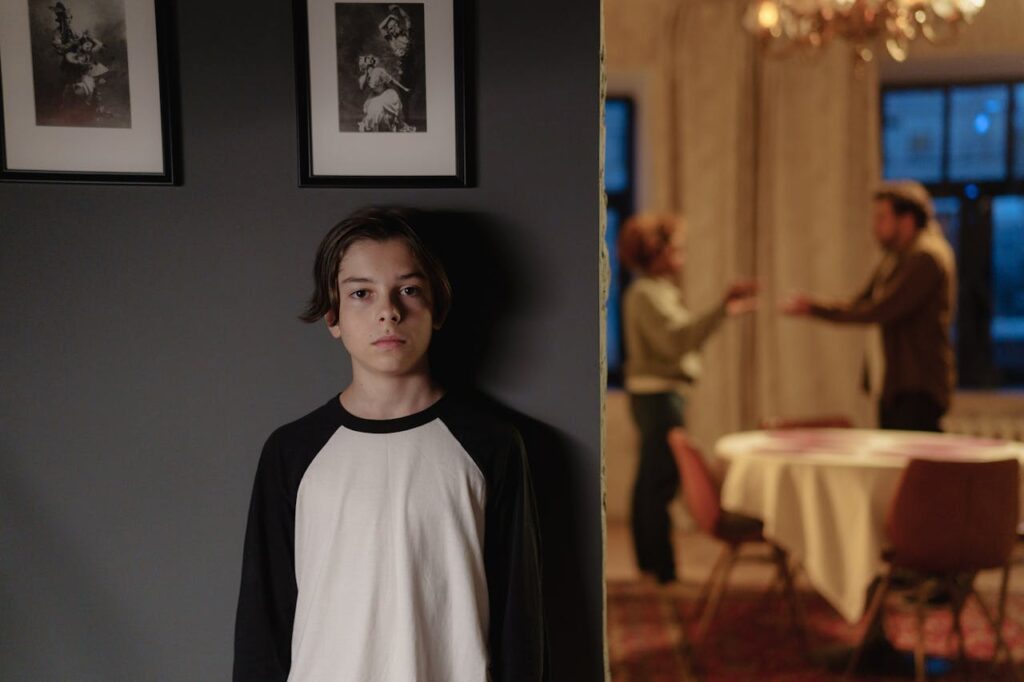Children possess remarkable memory systems that work differently from adult recall. While parents forget casual comments made during busy mornings or stressful evenings, their children store these moments with vivid clarity. Research in developmental psychology shows that children’s brains prioritize emotional and identity-forming experiences, creating lasting impressions from seemingly minor interactions.
Words Spoken in Heated Moments
Arguments and stressful situations produce the most memorable statements that parents often forget they made. “I wish I never had kids” or “You’re driving me crazy” emerge during overwhelming moments when patience runs thin. The stress hormone cortisol enhances memory formation, particularly for emotionally charged events. Children’s brains highlight these moments, creating vivid recollections that resurface decades later.
Parents’ immediate responses to children’s mistakes create similar lasting impressions. “How could you be so careless?” or “I’m disappointed in you” communicate more than momentary frustration. Children’s neural pathways for processing shame and guilt are still forming during these interactions. Research shows that harsh reactions to mistakes create anxiety around risk-taking and learning that persists into adulthood.
Comparisons and Identity Labels
Parents often make quick comparisons without realizing the impact they have. “Why can’t you be more like your sister?” or “Look how well Tommy listens to his mom” seem like harmless motivational tools. Children’s developing sense of self relies on external feedback. Their brains interpret these comparisons as fundamental judgments about their worth and capabilities. Neuroscience research indicates that comparative statements activate the same brain regions associated with physical pain.
Offhand remarks about physical traits or capabilities carry enormous weight. “You’re not the athletic type” or “She got the pretty genes in the family” slip out during conversations with friends or family members. Children lack the cognitive ability to contextualize these statements as temporary observations. Instead, they internalize them as permanent truths.
Parents make casual predictions about their children’s futures based on current behavior and often forget the lasting impact. “You’ll never amount to anything if you keep this up,” or “You’re going to be a heartbreaker when you grow up,” might seem like throwaway comments. Research says, children’s brains treat these statements as prophecies rather than observations. The developing mind cannot separate parental frustration from factual assessment. These predictions become internalized scripts that children either strive to fulfill or rebel against.
The Things They Overhear

Phone calls, discussions with spouses, and comments to friends provide windows into parents’ unguarded thoughts. Children overhear statements like “I don’t know what to do with him” or “She’s been such a difficult child lately.” Research shows that children are naturally attuned to conversations about themselves, even when they appear distracted. These overheard comments carry special significance because children perceive them as more honest than direct communication.
Busy parents sometimes brush off children’s enthusiasms or worries with automatic responses. “That’s nice, honey” or “You’re being too sensitive” serve as conversational shortcuts during hectic schedules. Children interpret dismissive reactions as judgments about the value of their thoughts and feelings. Research demonstrates that children who experience consistent dismissal struggle with self-advocacy and emotional expression later in life.

The Positive Words That Stick
Parents shouldn’t forget that children remember encouraging words with the same vivid clarity as criticism. “I’m proud of how hard you tried” or “You have such a kind heart” have become part of their internal dialogue for decades. Specific praise about effort and character traits creates lasting confidence that children carry into adulthood.
Generic praise falls flat compared to specific recognition. “Good job” gets forgotten, while “I noticed how you helped your friend when she was sad” stays with them. Children store detailed positive feedback as evidence of their capabilities and worth. Words of encouragement during struggles hit deeper than praise during easy moments. When parents acknowledge effort during failure, children learn that their value doesn’t depend on perfect performance.
How Age Changes What Children Remember
Preschoolers focus on emotional tone rather than actual words. A harsh voice saying “Clean your room” gets remembered as rejection, while the instruction gets lost. Elementary school children begin parsing actual meaning, but take statements literally. They cannot separate temporary frustration from permanent judgment. “I can’t deal with you right now” sounds like permanent rejection to a seven-year-old.
Teenagers process both emotion and meaning, but their developing brains amplify everything. They remember not just what parents say but how it felt to hear it. Critical comments during adolescence resurface during their own parenting years, creating cycles that span generations. Studies show that children as young as three begin forming self-concepts based on parental commentary, and these early impressions influence their choices for decades.
When Siblings Keep Score
Children track what parents say to them versus their siblings. “Why do you tell Sarah she’s smart but call me stubborn?” reflects how carefully kids monitor different treatment. These comparisons shape sibling relationships for life.
Parents tailor their language to each child’s personality without realizing how it sounds to everyone else. Calling one child “my little athlete” while describing another as “the sensitive one” creates labels that children carry into adulthood. Even positive labels become prisons. The “good kid” feels pressure to never disappoint, while the “troublemaker” stops trying to improve. Children need space to grow beyond their early characteristics.
Making Things Right

Most parents say something they regret and forget how deeply those words land. Repair conversations work, but they require genuine acknowledgment rather than quick apologies. “I’m sorry I said you were being difficult. I was frustrated about work and took it out on you. That wasn’t fair” addresses both the harm and the real cause.
Children need to hear that their parents make mistakes, too. “I was wrong when I said that” carries more weight than defensive explanations about stress or circumstances. The repair should happen soon after the incident, but not immediately. Children need time to process their hurt before they can hear the apology.
The 24-hour rule helps during heated moments. When anger peaks, parents can say, “I need a minute to think about this” instead of speaking from pure frustration. This pause prevents words that cannot be unsaid. Simple phrase swaps make enormous differences. “I see you’re frustrated” works better than “You’re being difficult.” “That was a mistake” hurts less than “How could you be so careless?”
Parents can ask themselves whether their words would help or hurt if repeated daily. The internal voice children develop mirrors what they hear most often. What parents say in passing becomes what children say to themselves for years to come.
Disclaimer: This article was created with AI assistance and edited by a human for accuracy and clarity.

